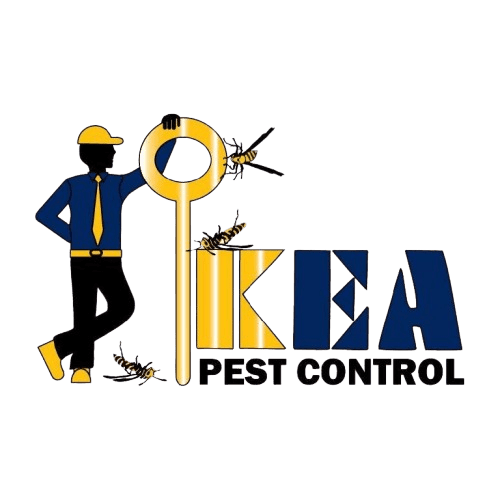Health Risks of Ant Infestations in Connecticut

Posted October 15th 2025
Can Ants Carry Disease?
If you’ve ever spotted ants in your kitchen or pantry, you may have wondered if these tiny insects can actually spread diseases. While ants don’t transmit illnesses in the same way mosquitoes or ticks do, they can contaminate surfaces, utensils, and food with harmful bacteria.
Whether you’re dealing with carpenter ants, pavement ants, or sugar ants (common throughout Connecticut), understanding how ants move bacteria throughout your home is crucial for protecting your family’s health.
👉 Related reading: Carpenter Ant Control in Connecticut | Ant Infestation Prevention Tips
How Ants Cause Cross-Contamination
Ants are scavengers by nature, meaning they’ll travel anywhere food or moisture can be found — including trash cans, toilets, pet bowls, and kitchen counters. Even if these areas appear clean, they can harbor harmful bacteria.
As ants move from unsanitary spots to food-preparation surfaces, they can spread pathogens such as:
- Salmonella
- E. coli
- Clostridium
- Staphylococcus
- Streptococcus
- Shigella
For example, an ant may crawl across a dirty sink or floor drain before reaching a loaf of bread or countertop. That trail becomes an invisible highway for germs. Once that happens, cross-contamination can occur throughout your home — especially in kitchens, bathrooms, or medical offices.
🕷 You might also like: Why Pavement Ants Invade Connecticut Homes
How Ants Transport Bacteria and Food-Borne Illness
Even if ants come from outside, they can still carry bacteria from soil, decaying matter, or dead insects. These microbes cling to their legs and exoskeleton, allowing them to contaminate every surface they touch.
Some of the most concerning pathogens linked to ants include:
- Salmonella – causes food poisoning and severe gastrointestinal symptoms
- E. coli – can cause diarrhea, vomiting, and abdominal cramps
- Shigella – responsible for dysentery-like symptoms
- Fungi and mold spores – which may trigger allergic reactions
Ants don’t just carry these microbes on their bodies — they can also deposit them in food storage areas or utensils, especially when they forage at night.
Can Ant Bites Make You Sick?
While most household ants are not aggressive, ant bites can still cause problems for sensitive individuals.
- Minor ant bites often result in localized itching, swelling, or redness.
- Fire ant stings (rare in Connecticut but present in some areas) can cause painful welts and allergic reactions.
- In rare cases, severe reactions such as anaphylaxis can occur.
Scratching an ant bite can break the skin, creating a small open wound that bacteria can enter — potentially leading to infections like cellulitis.
See also: Identifying Biting and Stinging Insects in Connecticut Homes
How Long Can an Ant Infestation Last?
Homeowners often ask, “How long do ants live?”
Depending on the species, worker ants can live for several months, while a queen can survive for years — allowing colonies to persist indefinitely without professional intervention.
That means even if you clean up visible ants, hidden colonies may continue to thrive behind walls, in crawl spaces, or beneath flooring.
Protect Your Home from Ant-Related Health Risks
Once ants begin spreading throughout your home, DIY methods are rarely enough. Store-bought sprays or traps may kill a few workers but won’t reach the colony or eliminate the queen.
A professional pest control company can:
- Identify the species of ant
- Locate nests and entry points
- Apply targeted, eco-friendly treatments
- Establish preventative barriers to keep ants out
At KEA Pest Control, we provide comprehensive ant control services designed for homes and healthcare environments across Connecticut. Our team uses safe, university-backed methods to stop infestations and prevent future contamination.
📞 Contact KEA Pest Control today for professional ant and pest management in Connecticut.
👉 Explore our services:
- Ant Control Services
- Rodent Control in Connecticut
- Preventative Pest Control Plans
FAQ: Can Ants Carry Disease?
Q: Are ants dangerous to humans?
A: Most ants aren’t directly dangerous, but they can spread bacteria like Salmonella and E. coli, which may cause foodborne illnesses if transferred to your food or cooking surfaces.
Q: Can ants spread viruses?
A: No, ants are not known to carry or transmit viruses. Their primary concern lies in bacterial contamination and food spoilage.
Q: Can eating food that ants touched make you sick?
A: It’s possible. If ants have traveled through contaminated areas (like trash or drains), they can carry bacteria that could cause stomach upset or food poisoning.
Q: How can I stop ants from spreading germs in my kitchen?
A: Keep food sealed, clean counters regularly, wipe spills immediately, and address moisture problems. For recurring infestations, professional treatment is recommended.
Q: Do ants carry diseases like cockroaches do?
A: Similar to cockroaches, ants can carry bacteria on their bodies. However, cockroaches are generally more dangerous in terms of allergen and bacteria spread.
Final Thoughts
Ants may not transmit diseases like mosquitoes, but their ability to carry and spread harmful bacteria makes them more than a simple nuisance. Protecting your home requires both prevention and professional intervention.
For reliable, eco-friendly pest control in Connecticut, trust KEA Pest Control — your local experts in keeping homes clean, safe, and pest-free.
If you're noticing activity during cooler months, you may also want to read our guide on Why Rodents Start Creeping Indoors in November.
Related Connecticut Pest Control Services
- Rodent Control
https://keapestcontrol.com/services/pest-control/rodent-control-150478216 - Ant Control
https://keapestcontrol.com/services/pest-control/ant-control-150478218 - Stinging Insect Control
https://keapestcontrol.com/services/pest-control/stinging-insect-control-150529283 - General Pest Control
https://keapestcontrol.com/services/pest-control-service/general-pest-control-east-granby-ct-150599331 - Pest Prevention Programs
https://keapestcontrol.com/services/pest-control-service/pest-prevention-east-granby-ct-150599398
Contact Us
Have Questions? We’re Here to Help!
If you need more information about our services or have specific pest concerns, we’re just a click away. Contact us today with any questions or to learn how KEA Pest Control can help keep your home or business pest-free!

